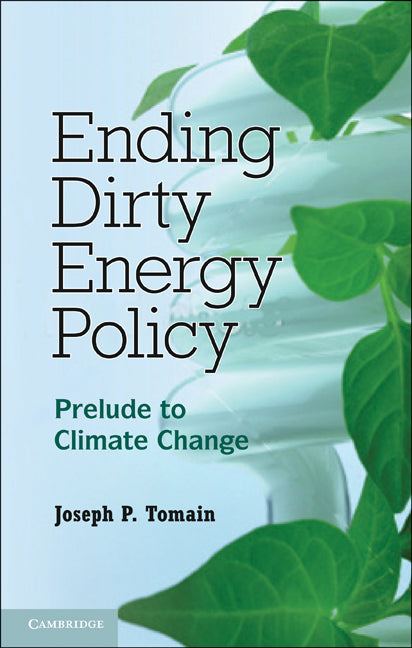Freshly Printed - allow 8 days lead
Couldn't load pickup availability
Ending Dirty Energy Policy
Prelude to Climate Change
Argues that the United States will not adequately address climate change until it transforms its fossil fuel energy policy.
Joseph P. Tomain (Author)
9780521127851, Cambridge University Press
Paperback, published 20 June 2011
320 pages
23 x 15.5 x 1.9 cm, 0.44 kg
'Joseph Tomain presents a carefully researched, clearly written, and persuasive account of how the United States can reform energy policy. While the challenge is daunting, Tomain points the way forward by revealing how law, policy, and politics contributed to the creation of our carbon-based economy, and how these forces can be mobilized to achieve a new energy future.' Sidney Shapiro, Wake Forrest University
Climate change presents the United States, and the world, with regulatory problems of a magnitude, complexity and scope unseen before. The United States, however, particularly after the mid-term elections of 2010, lacks the political will necessary to aggressively address climate change. Most current books focus on climate change. Ending Dirty Energy Policy argues that the US will not adequately address climate change until it transforms its fossil fuel energy policy. Yet there are signs that the country will support the transformation of its century-old energy policy from one that is dependent on fossil fuels to a low-carbon energy portfolio. A transformative energy policy that favors energy efficiency and renewable resources can occur only after the US has abandoned the traditional fossil fuel energy policy, has redesigned regulatory systems to open new markets and promoted competition among new energy providers, and has stimulated private-sector commercial and venture capital investment in energy innovations that can be brought to commercial scale and marketability.
Preface
Introduction
1. A regulatory history of dirty energy law and policy
2. Protectionist assumptions
3. The next generation is now
4. Consensus energy policy
5. Fossil fuel future
6. Electricity future
7. Venture regulation
8. Smart energy politics
9. Conclusion – strategies for the energy future.
Subject Areas: Environmental science, engineering & technology [TQ], Organizational theory & behaviour [KJU], Political economy [KCP], Environmental economics [KCN], Experimental psychology [JML]


